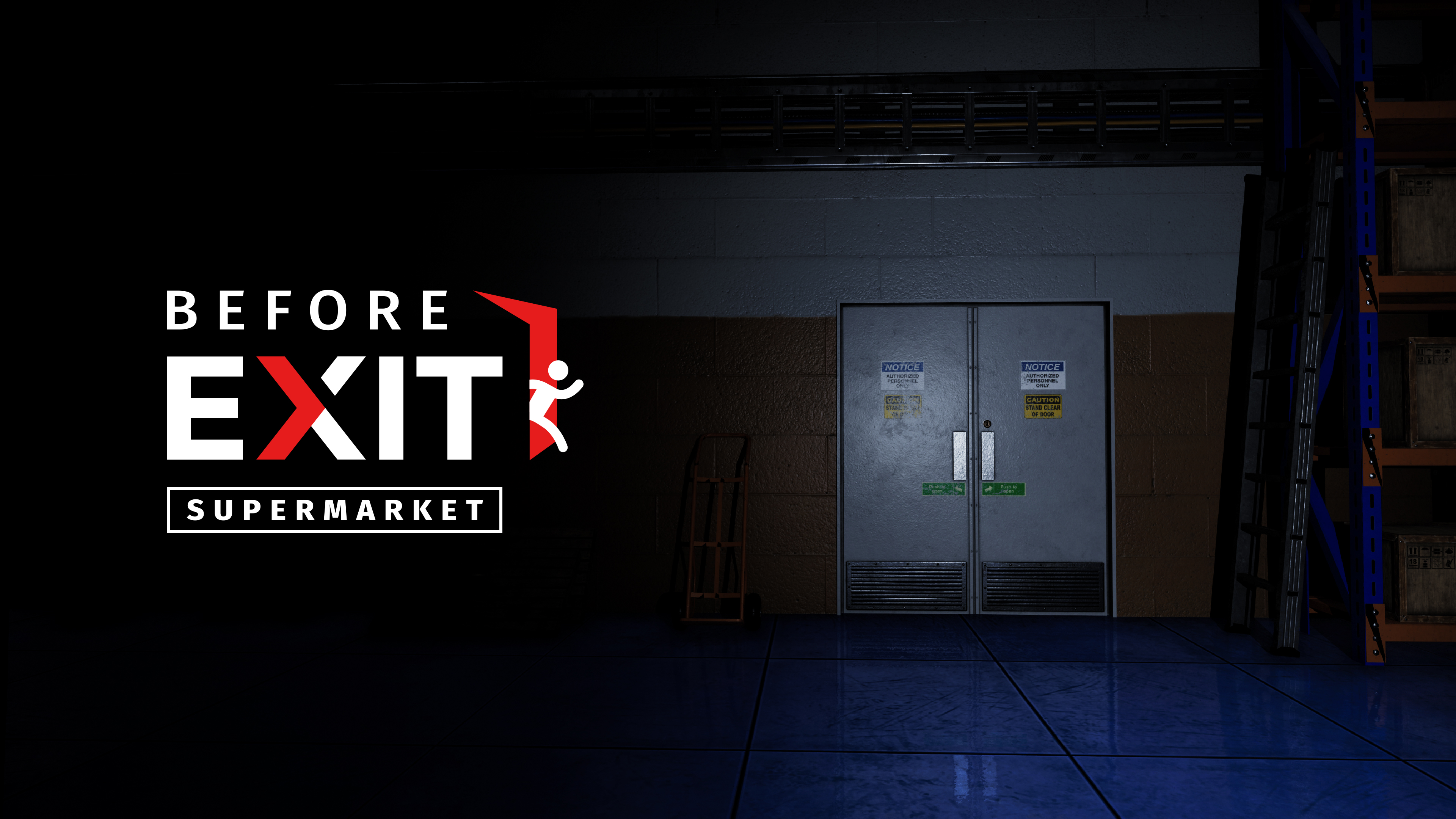
You’re the closer: a lone night‑shift employee handed the keys and a brittle checklist, responsible for turning a bustling supermarket into a locked, silent place. Before Exit: Supermarket reframes that ordinary duty as a tense, oddly pleasurable ritual where tiny oversights carry outsized consequences. It stitches walking‑sim leisure to roguelike unpredictability and logic‑puzzle precision, turning banal chores; flipping switches, closing fridge doors, mopping stains, straightening displays; into a compact, repeatable loop that rewards careful observation, route planning, and a rising, delicious paranoia that maybe you missed one crucial thing.
What the game is
• Premise: Play night by night as the supermarket’s closer; follow a brittle checklist, complete shifting assignments, and lock up without missing a single condition. The stakes are deliberately small but merciless; one overlooked light, open fridge, or stray piece of paper can cost you the job, turning routine into tense accountability.
• Form and length: Built for short, focused sessions, the game loops through compact nightly runs that reward repetition. Each playthrough is a bite‑sized challenge ideal for quick replays as you chase flawless closes, unlock achievements, and refine routes.
• Design mix: A hybrid of roguelike randomness and walking‑sim inspection: daily permutations reshuffle tasks and surprises, while light environmental puzzles demand observation and logical deduction. The result is a procedural checklist that feels both procedural and personal, where memory, method, and small rituals determine success.
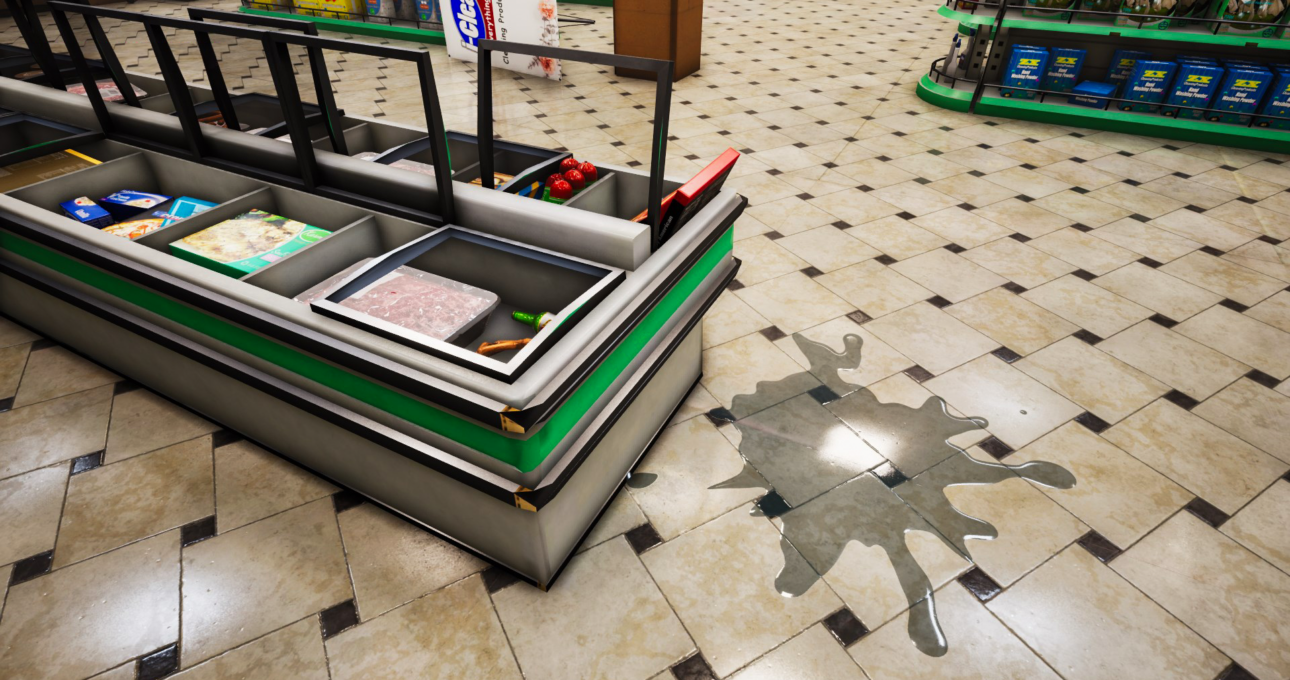
Gameplay and structure
• Daily loop intensified: Each shift hands you a crisp checklist; walk the aisles, inspect fridge seals, switch off lights, mop stains, and hunt down the tiny, easily missed items; a dead neon letter, an abandoned receipt, a half‑hidden yogurt cup. The boss’s inspection is binary and unforgiving; any unchecked box turns a routine close into a failure condition.
• Roguelike freshness: The supermarket resets every day; objectives shuffle, messes appear in surprising corners, and small random events rearrange your priorities. That procedural unpredictability prevents rote routes and keeps each night feeling unfamiliar and urgent.
• Memory turned gameplay: This is a game of recall more than reflex; success lies in noticing and remembering; where an open fridge last flickered, which aisle hid a spill, or which display still needs facing. Learning the store’s patterns and building mental routes is the primary skill progression.
• Tension economy and stakes: Rules are straightforward but the consequences are harsh; the mandate to “close perfectly or be fired” injects a steady, low‑grade anxiety. That pressure is the loop’s engine; it makes careful scanning, checklist discipline, and small rituals satisfying and repeatedly compelling.
• Emergent moments: Because tasks are simple and conditions strict, the most memorable play moments emerge from tiny accidents and near‑misses; a light that won’t stay off, a fridge that betrays you at the last second, or the relief of finding the last overlooked paper before the boss walks in. These micro‑stories are the game’s real reward.
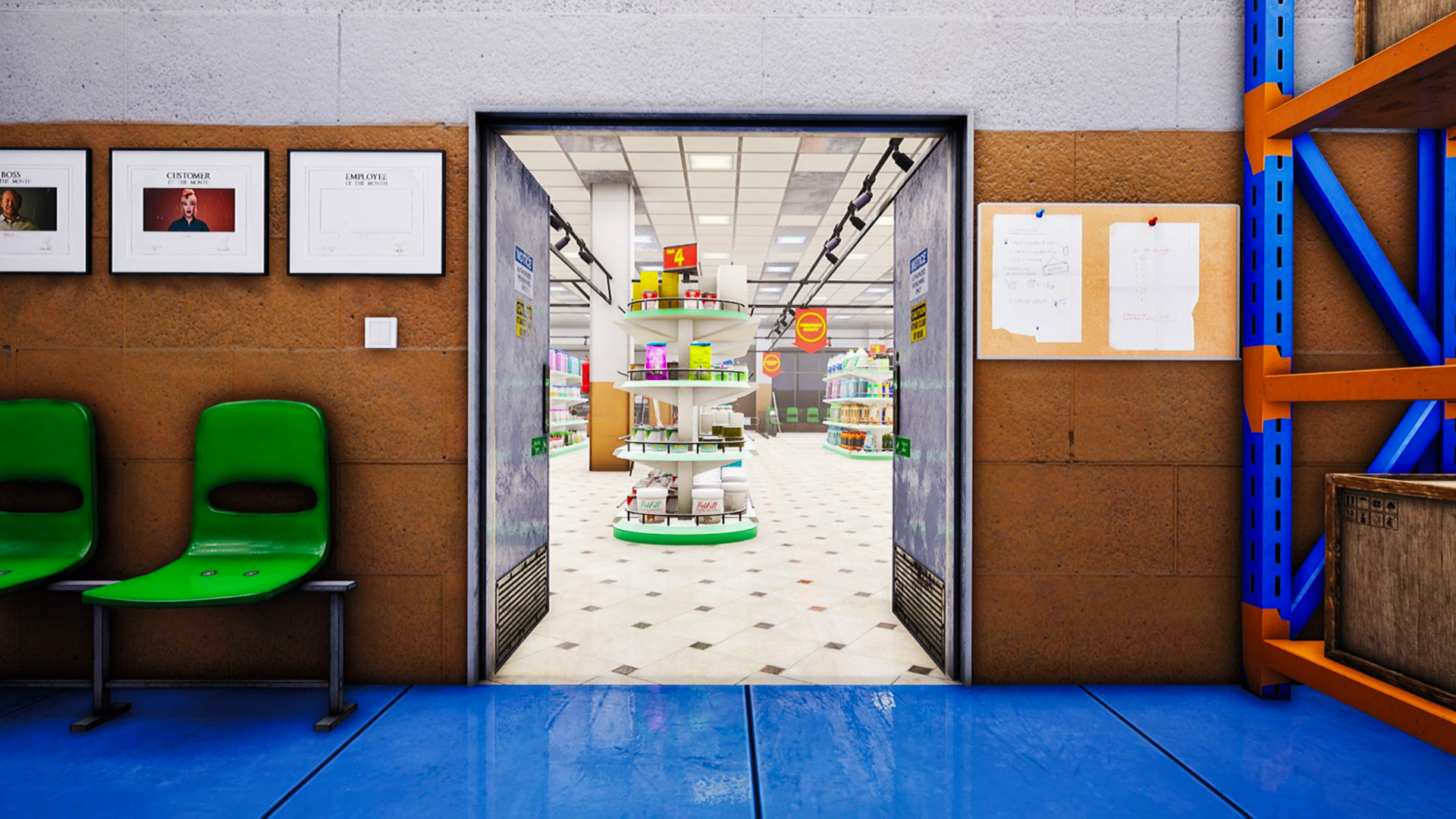
Themes and tone
• The dignity of small labor: The game rescues the unnoticed rituals of janitorial and retail work from invisibility, treating each wipe, switch‑flip, and shelf‑face as a meaningful task rather than a throwaway chore. Completing these micro‑duties delivers a quiet, cumulative satisfaction: competence is not spectacle here but the steady, calm accumulation of correct small acts.
• Absurdity woven into the mundane: Before Exit: Supermarket leavens its seriousness with tiny, wry failures; a single neon letter dark, an expired yogurt half‑hidden behind a display; that expose how precarious apparent competence can be. Those moments bend the simulation toward dark humor and gentle absurdity, reminding you that the world’s order is held together by fragile, often laughable threads.
• Mastery through habitual labor: The game’s progression is less about levels and more about rhythms: repeated nights teach you patterns, refine routes, and train memory. Habit becomes the engine of improvement, turning repetitive closure into a visible arc of skill where attention and routine transform anonymous work into quiet, demonstrable mastery.
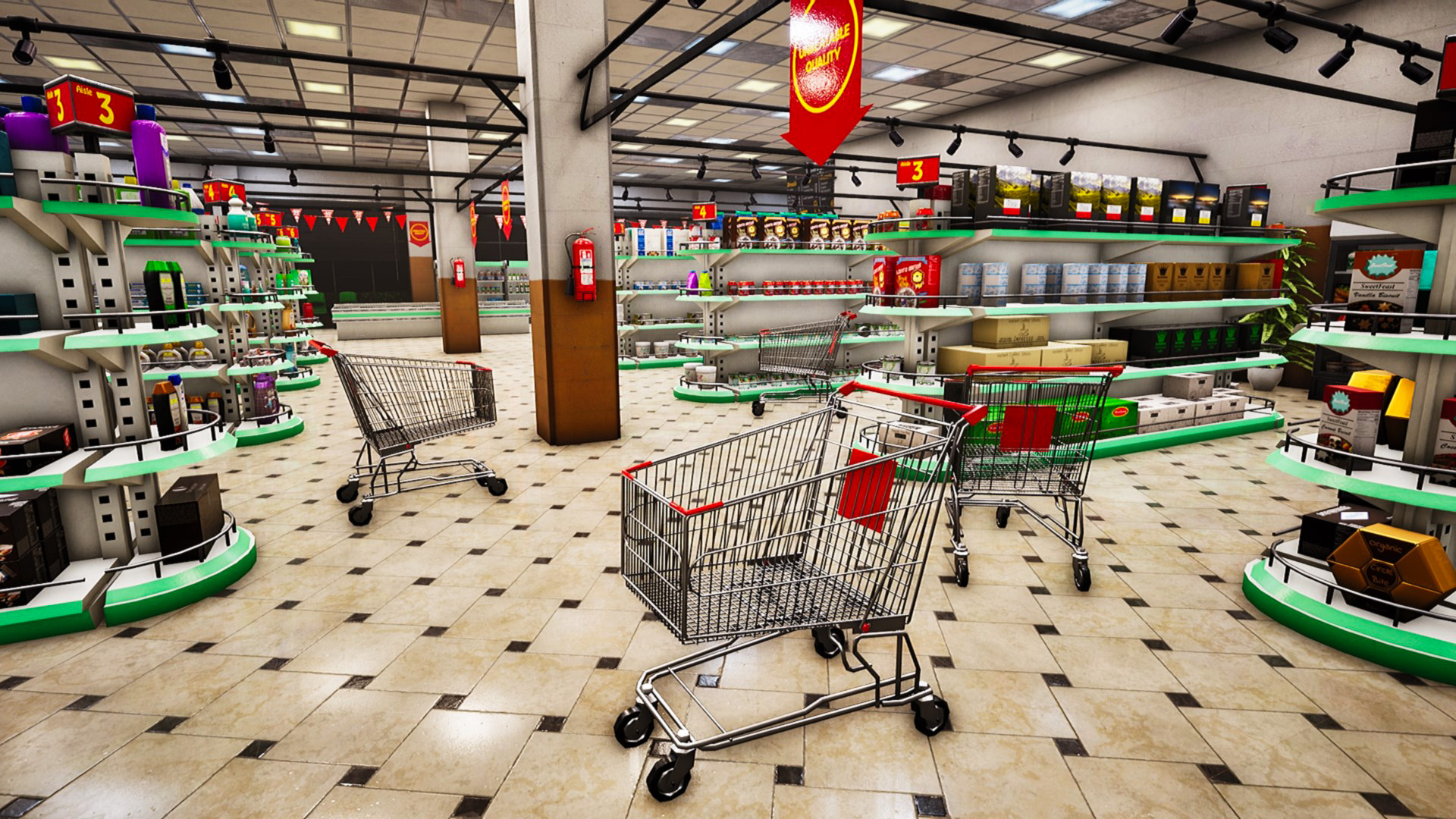
Presentation and feel
• Practical visuals: The art direction favors clarity over flash; muted palettes, readable signage, and deliberately cluttered shelves make it easy to scan environments at a glance. Small props; toppled boxes, half‑faced products, damp floor patches; are modeled and placed with intent so they function as clear gameplay signals as well as mood pieces. Additive touches (reflections in freezer glass, scuffed linoleum) deepen immersion without distracting from the checklist.
• Sound design as utility and mood: Audio does double duty; functional cues and atmosphere. Refrigerators hum, fluorescent lights buzz, aisle speakers spurt announcements, and the mop squeaks in believable rhythms; these sounds guide attention as much as they color the scene. Strategic silence and low‑frequency rumble heighten the tiniest beeps and clinks, turning incidental noise into a reliable part of problem‑solving and tension‑building.
• Pacing and session design: Nightly runs are compact, deliberately measured, and easy to slot into short play windows. The loop balances brisk checklist momentum with breathing room for inspection and discovery; the result is a satisfying cadence where small rituals accumulate into clear progress. Optional difficulty or checklist density settings would let players tune sessions toward a calmer, more contemplative close or a tighter, high‑pressure run.
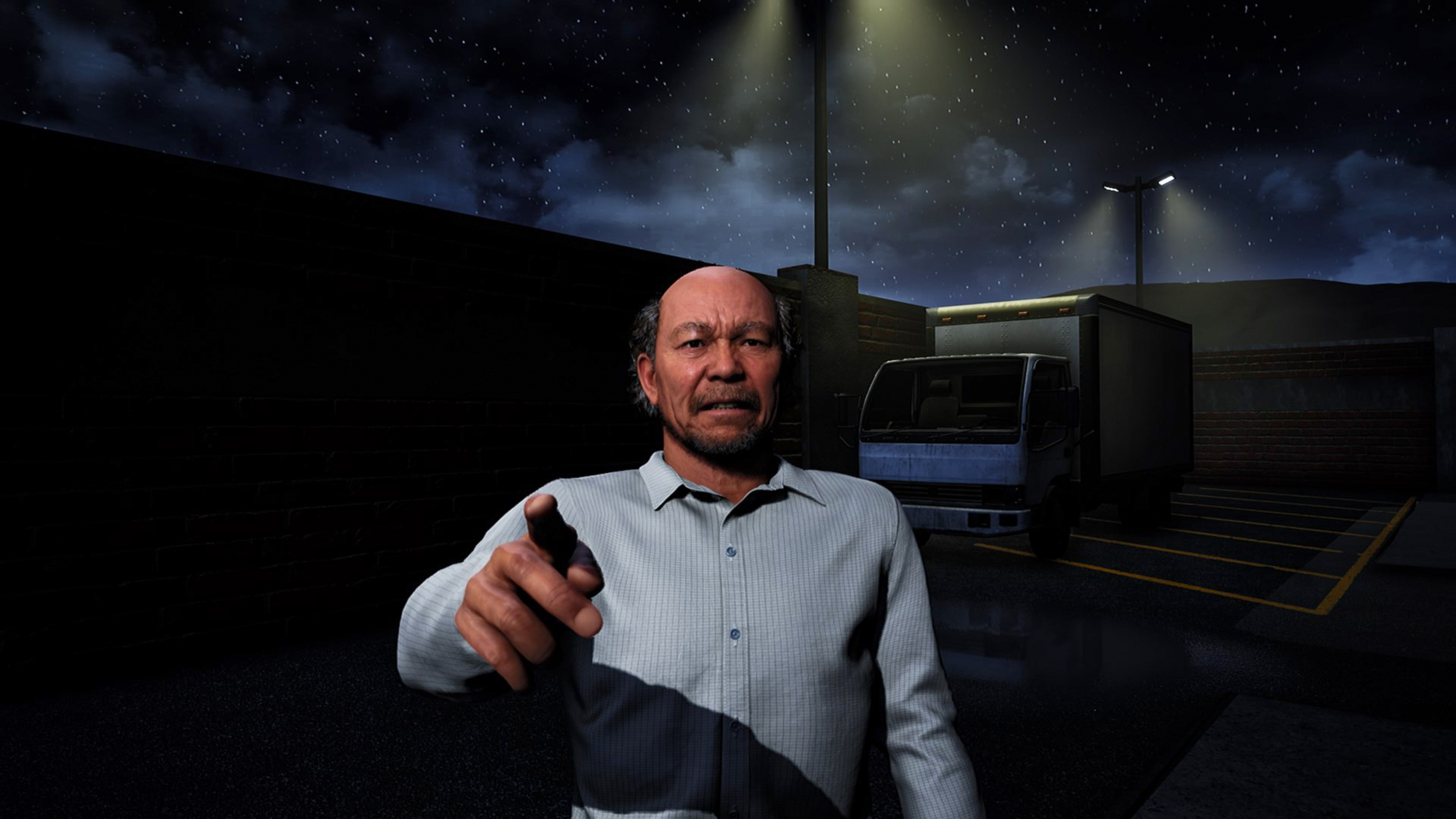
Player feedback and technical notes
• Achievement fixes and stability: Early reports flagged broken achievements; subsequent patches appear to have resolved those for many players, improving completion incentives.
• Inconsistent lighting behaviour: Several players described oddities where lights seemed off but registered as on for closing checks; this intermittent state can feel unfair and undermines trust in the rules.
• Occasional bugs: Examples include doors or lights reverting, phantom items, or the game misreading a completed task. These issues interrupt the tidy logic the game relies on.
• Polish roadmap: Clear fixes that would help; tighten state persistence for lights/doors, make checklist feedback explicit (so players can confirm a task registered), and expand task variety to deepen replay.
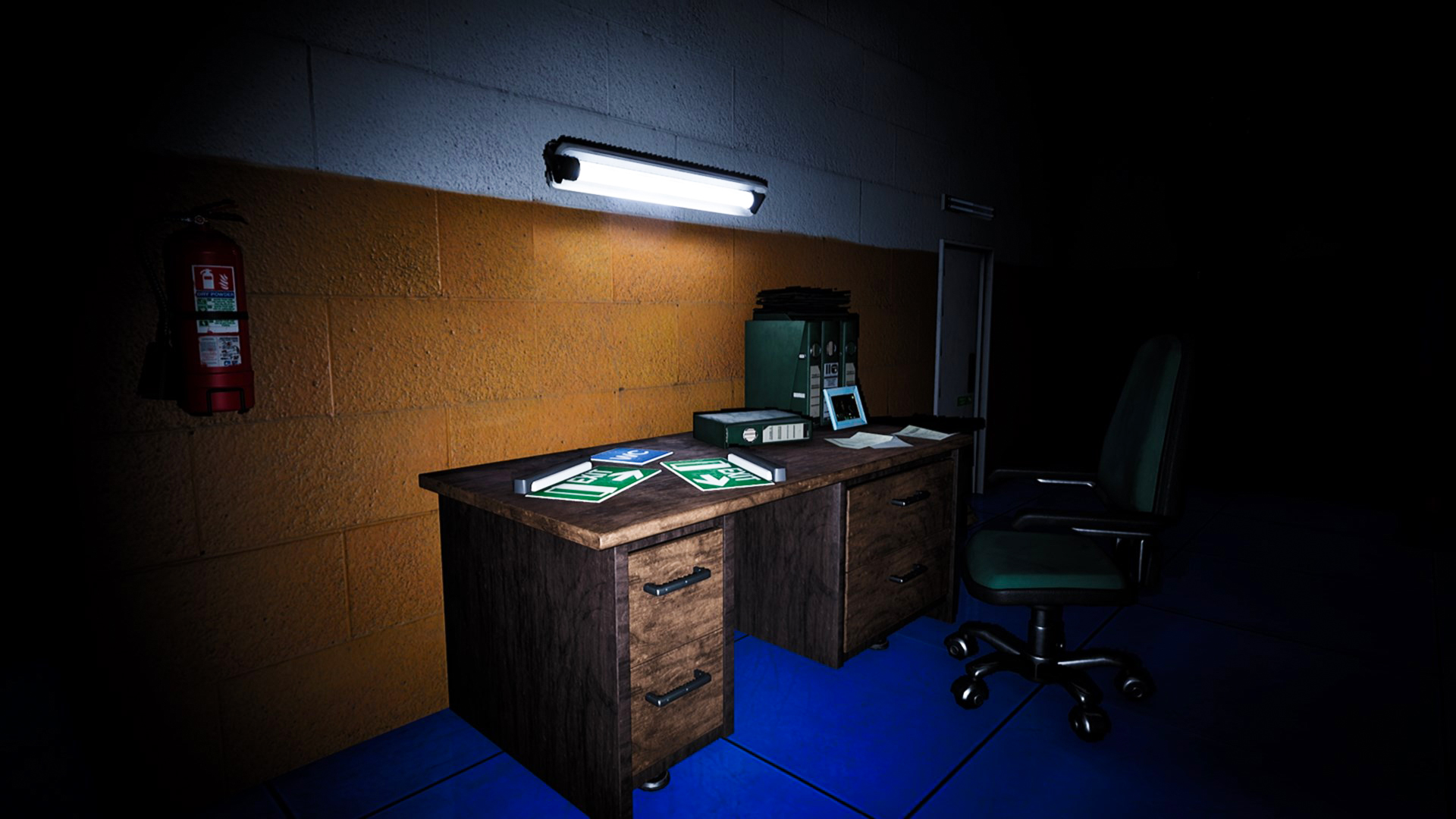
Who will like it
• Play it if you enjoy methodical sims, tactile checklists, short repeatable runs, or games that find interest in everyday labor.
• Wait or skip if you demand large scope, dense puzzles, or rock‑solid deterministic systems without occasional quirks.
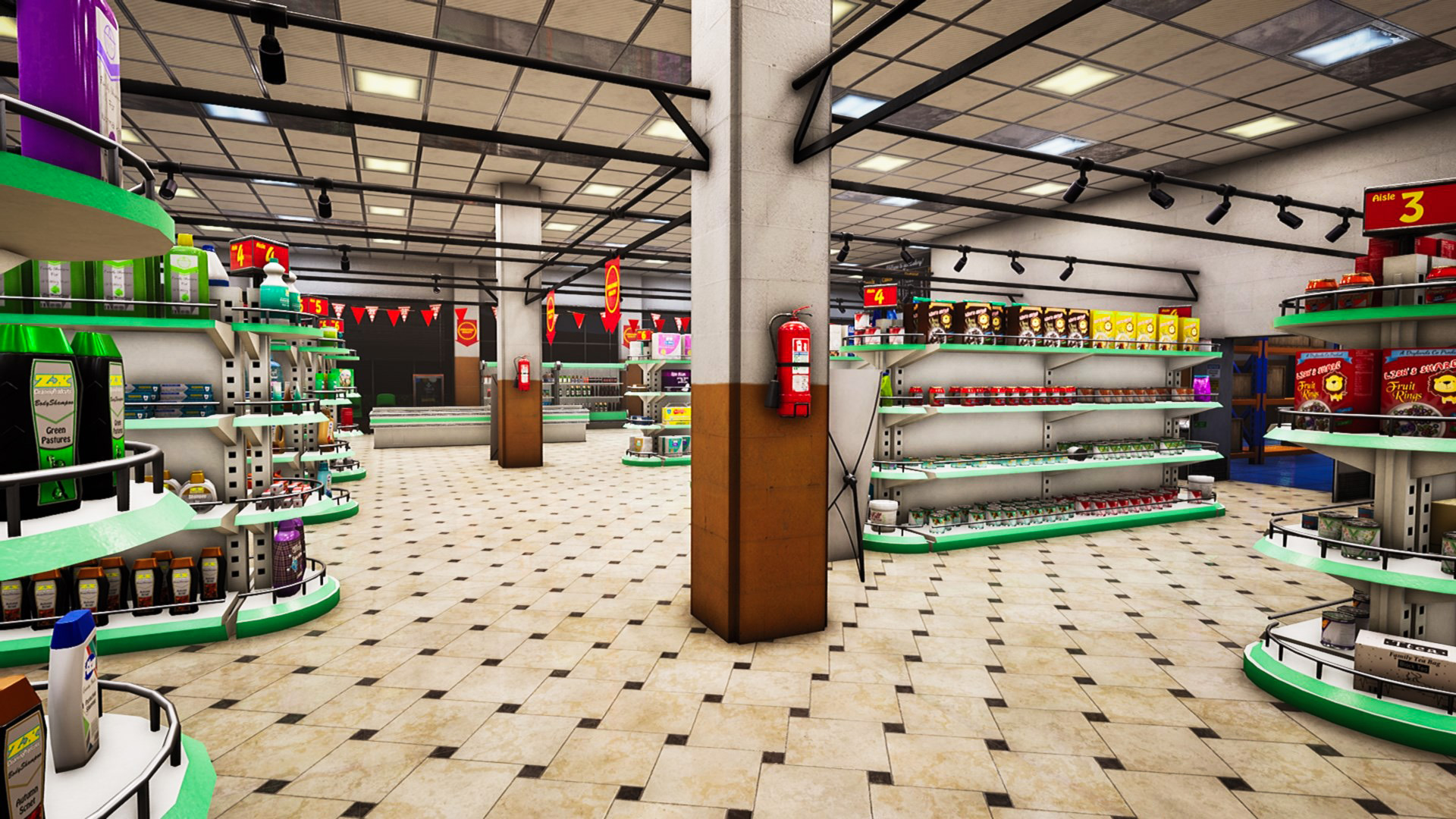
Final verdict
Before Exit: Supermarket is a tightly focused, quietly winning experiment that turns the banal act of closing a store into a satisfying procedural puzzle. At its best the game’s clean rules, readable environments, and roguelike reshuffles reward careful observation, route‑building, and the small pleasures of getting everything exactly right. When systems behave, the loop clicks: memory becomes mastery, tiny rituals feel meaningful, and each flawless close lands like earned workmanship. The flip side is that intermittent technical quirks; lighting state oddities, achievement hiccups, and the occasional phantom task; undercut that promise and can turn a tense triumph into a baffling failure. Still, for players who enjoy compact sims that convert attention and habit into gameplay, and who are happy to re‑run shifts in pursuit of perfection, this is a charming little loop with obvious potential for polish, expanded objectives, and future spin‑offs.
Watch and Wishlist
• Why wishlist: Track patches that stabilize task detection and lighting; watch for expanded nightly objectives or additional locations (gas station spin‑offs are a natural fit).
• Who should wishlist: Fans of compact simulators and roguelike loops who enjoy improving through repetition and observation.
• When to buy: Pick it up on sale or after a patch if you’re sensitive to the bugs; buy now if you want a low‑cost, replayable indie with a clear quirky premise.
Key Takeaways
• Distinct hook: Turning supermarket closing into a roguelike inspection game is clever and immediately understandable.
• Replayable loop: Randomized nightly permutations keep runs from feeling repetitive and reward memory and route planning.
• Small scope, big focus: The game trades breadth for a tight, repeatable loop that spotlights attention to mundane labor.
• Technical blemishes: Lighting and state‑persistence bugs can be frustrating; improvements to feedback and stability would raise the experience.
• Value proposition: For a modest price, it’s an entertaining time‑sink for players who like ritualized chores and observational challenges.
Game Information:
Developer & Publisher: Take IT Studio!
Platforms: Xbox Series X (reviewed), PC - Steam, PlayStation 5
Release Date: August 8, 2024
Score: 7.0 / 10
Before Exit: Supermarket is a rewarding little loop with a memorable concept; fix the bugs and add a bit more mechanical variety, and it could easily climb into higher territory.